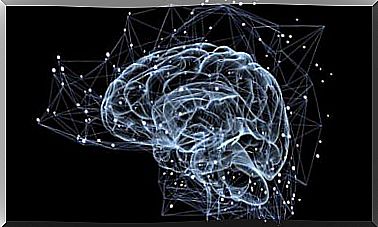What Happens In The Body When Sleeping?

Sleep is a basic need, which allows to maintain a healthy metabolic-organic correlation. If the adequate hours of sleep and the quality of rest are not respected, it can be absolutely harmful to health.
Rest is an important and determining factor for the well-being of the entire body. When we sleep, not only is the whole body recovered and restored, but basal energy levels are also restored.
Although the number of hours a person needs to sleep varies depending on the activity they are doing and the stage of life they are in, the ideal is for adults to sleep between seven or eight hours a day.
Phases or stages of sleep
We can classify the sleep phases into two categories: NREM and REM ( rapid eye movement ). In turn, sleep is divided into 90-minute cycles, alternating between NREM and REM sleep; generally there are five cycles per night. Specifically, the NREM ( not rapid eye movement ) phase has four sub-phases.

NREM phase
- Sleep initiation
This is the initial phase of sleep that can last between five to ten minutes, as it is easy to wake up. All the muscles of the body are completely relaxed and brain activity decreases.
- Sleep start
It is the second stage, where the body temperature and heart rate decrease significantly. It is the stage in which the body prepares to go into deep sleep and there is a slowdown in brain and muscle activity.
- Slow wave dream
It is the third and fourth stages, which are characterized by the fact that the individual has a deep sleep and it is more difficult to wake up. In addition, brain and muscle activity decrease markedly. During these stages, the body is in charge of repairing tissues, building muscles and bones, as well as helping to strengthen the immune system.
REM phase
During this phase, characterized by rapid eye movement, dreams occur. Then the brain activity is rapid, there is a paralysis of the muscles, the heart rate as well as the respiration accelerates and extremely intense dreams can be had.
The REM stage occurs approximately 90 minutes after falling asleep, which lasts about ten minutes. As the hours go by, the REM stages continue until they reach an estimated time of one hour.
The importance of sleep for the body
Not only the number of hours you sleep is important but also the quality of rest. Sleeping fewer hours means facing the day with less ability to maintain attention, store memories in our memory or access them. In addition, the amount of physical work that we can do will also be weighed down.

Precisely, the quality of sleep is associated with clarity of thought, the ability to respond to external stimuli and also to encode information and that this can give rise to a memory. This occurs because there is a kind of restoration of the cognitive system while we sleep.
National Heart, Lung and Blood Institute advises reducing quality sleep by one hour, as it can make it difficult to focus the next day and slower response time.
In this way, by “stealing” hours of sleep, the individual will be more prone to not performing correctly at school, work and even when driving. In addition, your mood will be significantly affected, having a greater predisposition to irritability. Also, those who suffer from chronic lack of sleep will be more likely to suffer from depression.
In short, sleeping the right hours is essential to maintain a high quality of life and enjoy comprehensive health at any stage of life.









